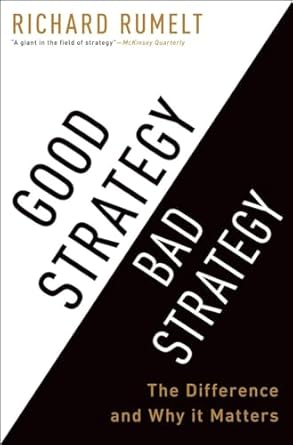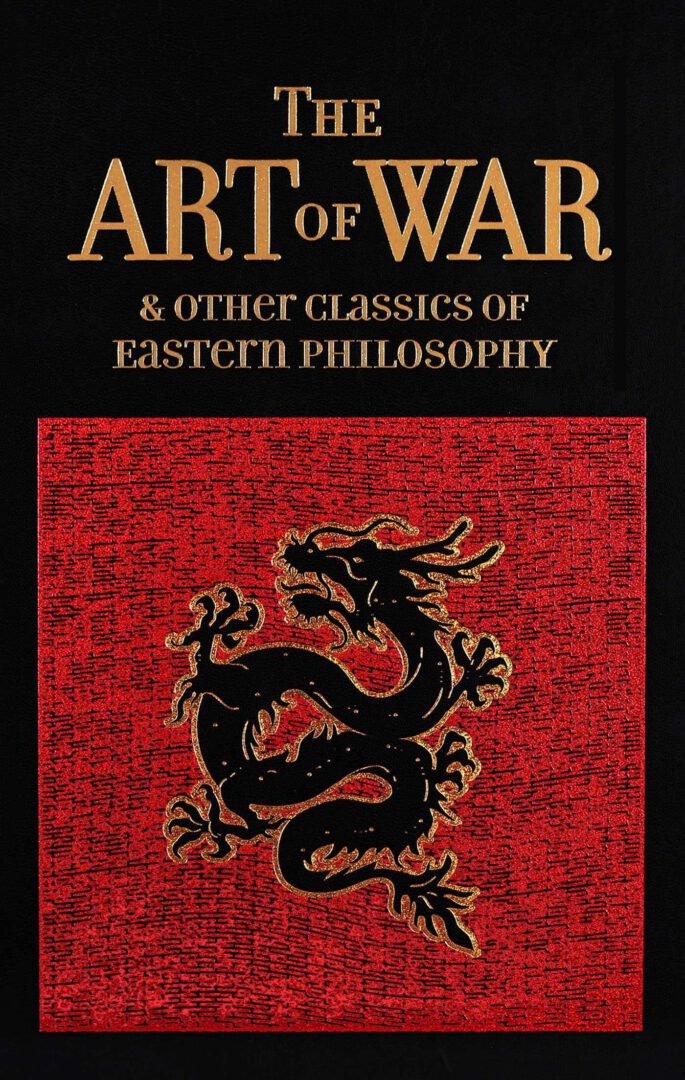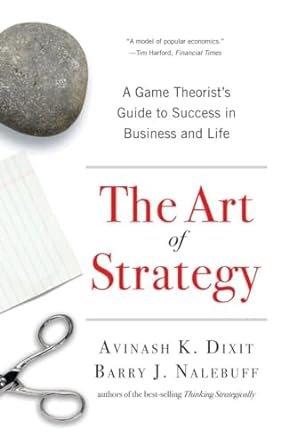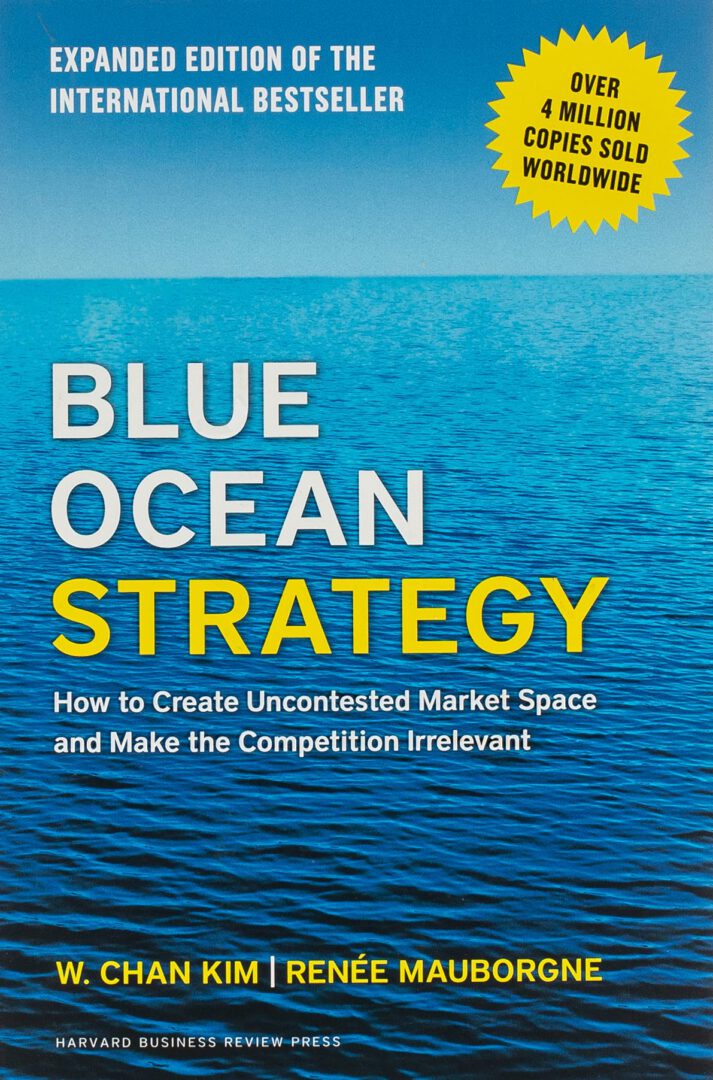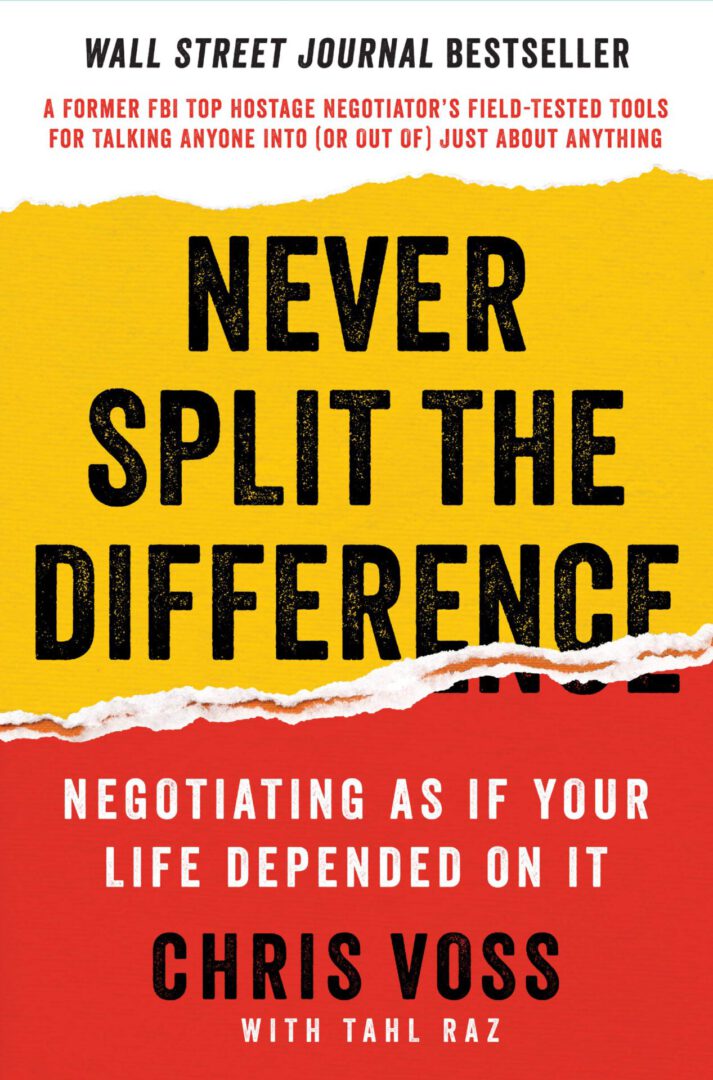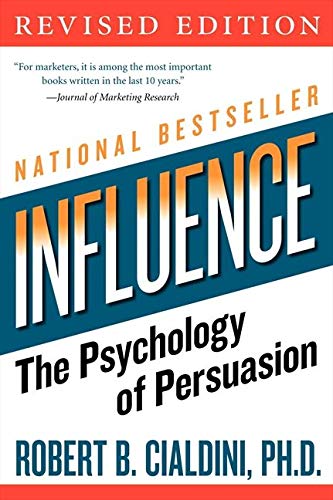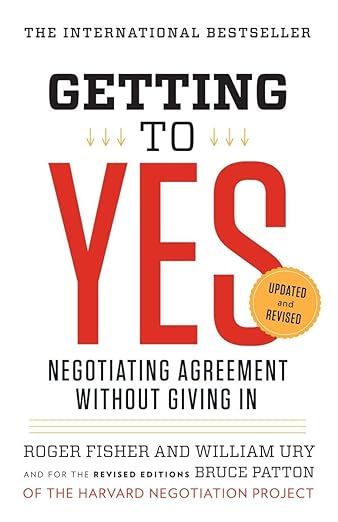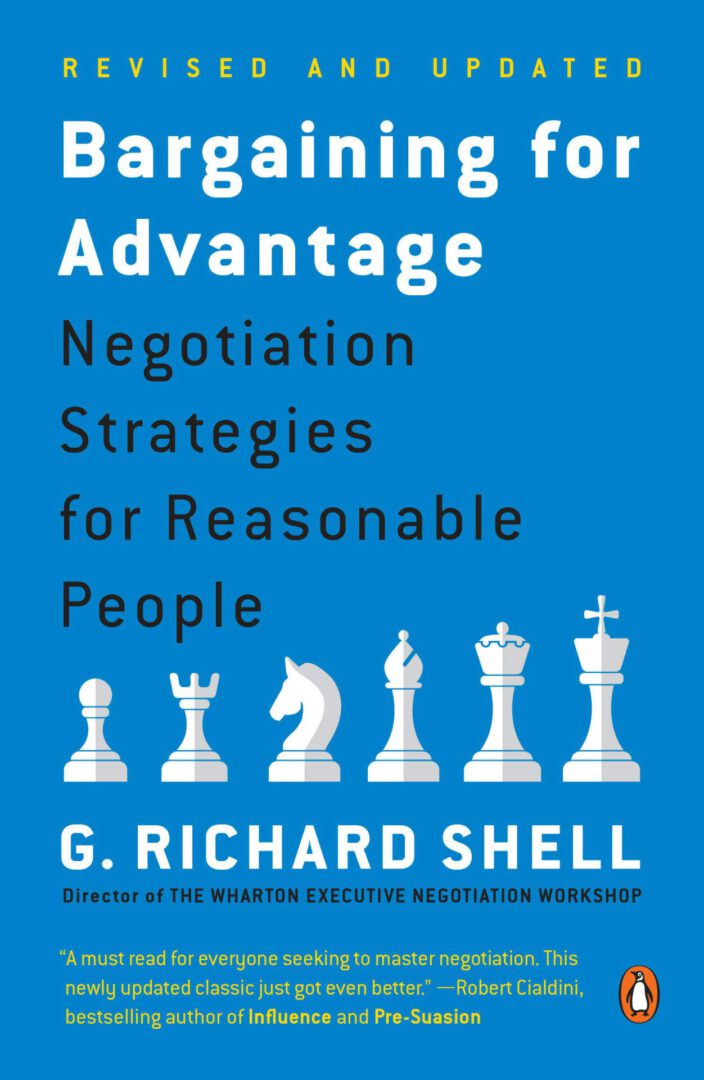Your support helps keep the site running! We recommend books and products we believe in. Some of the links on this page are affiliate links, which means we may earn a commission if you purchase through these links. Read our affiliate disclosure.
With a quick search, you will find hundreds of books on negotiation and strategy.
When I was working for my company, improving my negotiation skills was important, and although I used Audible to listen to many of them, I found a few that made sense for me (and my time as a parent).
Though if I knew better, I would wait for my kids to grow a bit and train myself to live with negotiations that you almost certainly lose (yes, I am talking to you as a parent who reads this piece right now)
So let’s dive in, and I will share some of my favorites -or not- and I hope I will help a few of you save some time.
What are the Best Books for Strategy and Negotiation?
Several books can provide valuable insights regarding understanding strategy in depth. Some of the best books on strategy include:
- “Good Strategy/Bad Strategy” by Richard Rumelt
- “The Art of War” by Sun Tzu
- “The Art of Strategy: A Game Theorist’s Guide to Success in Business and Life” by Avinash K. Dixit and Barry J. Nalebuff
- “Blue Ocean Strategy: How to Create Uncontested Market Space and Make Competition Irrelevant” by W. Chan Kim and Renée Mauborgne
Regarding honing negotiation skills, several books offer practical strategies and tips. Some recommended books on negotiation include:
- “Never Split the Difference: Negotiating As If Your Life Depended On It” by Chris Voss
- “Influence: The Psychology of Persuasion” by Robert Cialdini
- “Getting to Yes: Negotiating Agreement Without Giving In” by Roger Fisher and William Ury
- “Bargaining for Advantage: Negotiation Strategies for Reasonable People” by G. Richard Shell
Let’s see them below…
Books on Strategy
Good Strategy Bad Strategy: The Difference and Why It Matters
Rumelt, a highly regarded strategy expert, presents a comprehensive framework for developing effective strategies and exposes the flaws in common misconceptions about strategy. This book is a sharp, no-nonsense guide to understanding the essence of strategy and how it differs from mere wishful thinking or organizational buzzwords. Packed with real-world examples from various industries, the book provides valuable insights into crafting and implementing effective strategies. While the book is highly analytical and requires some prior understanding of business strategy, its practical approach and clear explanations make it an invaluable resource for business leaders, managers, and anyone interested in strategic planning.
What We Like Less:
- The book’s in-depth and analytical nature might be challenging for readers new to the concepts of business strategy.
- Some may find the examples and case studies skewed more towards large corporations, potentially limiting its applicability to smaller businesses or startups.
Why You Are Going to Like it:
- The real-world case studies are not just illustrative but also incredibly engaging, making the concepts discussed both understandable and relatable.
The Art of War
The Art of War is a military strategy book Sun Tzu wrote around the 6th century BC. This book is not only a military strategy, but it also contains some philosophical and moral teachings. It was written as a guide for generals on how to win wars. The Art of War by Sun Tzu is a book that has been translated into many languages and read by people from all over the world. The book is divided into two sections: The first section describes the five most important principles in war, while the second section explains how these principles should be used in practice. For example, Know when to fight and avoid fighting, or how to appear powerful when you are weak and weak when you are strong. If you know your adversary and yourself, you won’t need to worry about the outcome of a hundred conflicts.
What We Like Less:
One potential drawback is the sheer number of versions and publications available on the market, which can make it challenging to determine the most authentic and accurate edition.
Why You Are Going to Like it:
The Art of War remains a timeless classic that offers profound wisdom and guidance for anyone seeking success in various aspects of life, from business to personal relationships. Immerse yourself in Sun Tzu’s teachings and unlock the secrets to overcoming challenges and achieving victory in all your endeavors.
The Art of Strategy: A Game Theorist’s Guide to Success in Business and Life
If you are looking for a book that combines the world of strategy with game theory, “The Art of Strategy” by Avinash K. Dixit and Barry J. Nalebuff is a must-read. Avinash Dixit and Barry Nalebuff, celebrated game theorists, break down complex concepts into engaging and practical advice.
The authors will introduce you to the principles of game theory and its application to strategic decision-making. They discuss various topics, such as competition, cooperation, and the role of information in strategic interactions. You will discover how to analyze situations strategically, anticipate the actions of others, and make well-informed strategic choices. The strategies presented in this book can be applied in negotiations, business deals, and even everyday decision-making.
This book takes you on a journey through strategic thinking, offering insights into how to outthink and outmaneuver competitors, whether you’re sealing a business deal, negotiating a salary, or deciding where to dine.
What We Like Less:
- The concepts, while explained well, can be complex and require time to fully grasp, especially for those new to game theory.
- The depth and breadth of examples are impressive but might overwhelm those looking for quick, easy answers to strategic dilemmas.
Why You Are Going to Like it:
- Dixit and Nalebuff are masters of making game theory accessible and relevant to everyday situations, transforming abstract concepts into tangible strategies.
- The book is packed with fascinating examples that illustrate how game theory can be applied in various real-life scenarios, making it both educational and entertaining.
Blue Ocean Strategy, Expanded Edition: How to Create Uncontested Market Space and Make the Competition Irrelevant
This book is a must-read for any entrepreneur or business owner who wants to grow their company. It teaches you how to create uncontested market space and make competition irrelevant in the process. The book is written by W. Chan Kim and Renée Mauborgne, two professors at INSEAD, the prestigious international business school based in France. The authors have spent years studying why some companies succeed while others fail, and they found that the difference often comes down to this: companies that create “blue oceans” – uncontested market space – see dramatic growth, while those that don’t remain trapped in “red oceans” of bloody competition.
What We Like Less:
The book may be a bit lengthy and somewhat dated, but the core concept remains incredibly relevant and valuable for today’s businesses.
Why You Are Going to Like it:
You’ll appreciate Blue Ocean Strategy’s transformative approach to business growth and the clear, actionable steps it offers to help you break away from the competition. Embrace the power of innovation and open up a world of untapped potential for your business.
Books on Negotiation
Never Split the Difference: Negotiating As If Your Life Depended On It
Never Split the Difference is a book that offers universal and timeless advice on negotiation. It is a book that will help you understand how to negotiate in any situation, no matter what side of the table you are sitting on. This book has been written by Chris Voss, a former FBI negotiator and author of other bestselling books about negotiations. The book offers advice for both personal and business life, and it is based on the idea that both parties should be willing to meet in the middle. Some ideas you will read don’t seem to make rational sense; however, they seem to work.
What We Like Less:
The book’s length may be daunting for some readers.
Why You Are Going to Like it:
The true power of Never Split the Difference lies in its accessibility; you can can quickly grasp the fundamentals while honing your skills over time. Chris Voss’s expertise shines through, making this book an indispensable resource for anyone looking to level up their negotiation abilities
Influence: The Psychology of Persuasion
Influence: The Psychology of Persuasion is a book by Robert Cialdini that offers a comprehensive overview of the psychology of persuasion and its applicability in our daily lives. The book has been published many times, and the first edition dates back to 1984.
This book will help you to understand the six universal principles of persuasion, which are reciprocity, authority, commitment and consistency, social proof, liking, and scarcity. And although the book goes back in time, people don’t change.
Case studies or examples of successful negotiations explained in the book: Cialdini uses many case studies and examples, ranging from sales tactics to everyday situations, to demonstrate how principles like reciprocity, commitment, social proof, authority, liking, and scarcity work in practice.
The book has been one of the best-selling books on psychology and negotiation. Of course is is equally awesome read for your marketing.
What We Like Less:
It is not an easy read as it contains a lot of information. Some people have also complained of poor paper quality. I got the Audible version and I was OK.
Why You Are Going to Like it:
The book has excellent content you can use for effective marketing, selling or negotiations.
Getting to Yes: Negotiating Agreement Without Giving In
This book is a classic in the field of negotiation. Fisher and Ury provide a straightforward, universally applicable method for negotiating personal and professional disputes without getting angry or giving in. It’s based on the principle of ‘principled negotiation,’ focusing on interests rather than positions. It brilliantly lays out the method, fundamentally shifting how we approach negotiations. The book moves away from the traditional adversarial approach and instead focuses on mutual interests. This approach is incredibly versatile and applicable in a wide range of situations, from high-stakes business deals to everyday personal disputes.
Key tactics and strategies discussed in the book: The book’s core revolves around key strategies like separating people from the problem, focusing on interests rather than positions, generating various possibilities before deciding, and insisting that the result is based on some objective standard. It’s packed with practical advice, like active listening, understanding the other party’s perspective, and developing options that offer mutual gains. The book also stresses the importance of objective criteria in negotiations, steering clear of emotional decision-making.
Application of negotiation skills in business deals and personal interactions: What makes “Getting to Yes” so valuable is its wide applicability. The techniques and principles outlined are as useful in resolving a family conflict as they are in closing a complex business deal. The book has real-world scenarios illustrating how principled negotiation can be effectively applied.
What We Like Less:
- If you’re looking for a quick-fix solution to win every argument, this might not be it. The book emphasizes mutual gain over one-sided victories.
- The examples and scenarios provided are helpful, but applying these principles to complex real-world situations might require more than just a read-through.
Why You Are Going to Like it:
- The focus on mutual interests over entrenched positions is a game-changer. You’ll start seeing negotiations as opportunities for problem-solving rather than battles to be won.
- Fisher and Ury’s approach is about effective communication and understanding, leading to more fruitful and less stressful negotiations.
Bargaining for Advantage: Negotiation Strategies for Reasonable People
What makes this book so valuable is that it provides readers with a step-by-step process to help them navigate any kind of negotiation, be it at work or in their personal lives. The authors have created a Solid framework for studying negotiations in a well-written book. Along with these frameworks, you will discover your preferred negotiation method and avoid common mistakes.
What We Like Less:
Though the book may not be an entertaining read for everyone, the information and strategies it contains are highly valuable.
Why You Are Going to Like it:
Shell’s writing is clear and concise, making the content easily digestible. The well-structured organization of the material will help you absorb and retain more information than expected, empowering you to excel in the art of negotiation.
Synergies between Strategy and Negotiation
Strategy and negotiation go hand in hand. Effective strategies often require negotiation skills to navigate and secure optimal outcomes. Likewise, effective negotiation requires a strategic mindset to identify opportunities, assess risks, and create value. Understanding the interplay between strategy and negotiation can help you achieve greater success in your business endeavors.
If you like this read check more of my articles at the Books Review.

